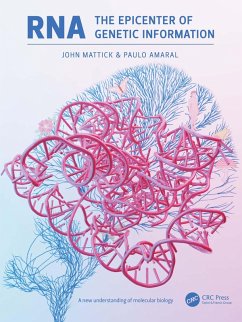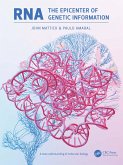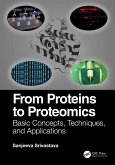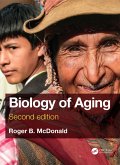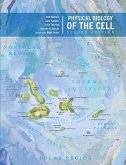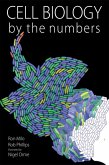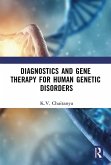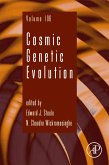0,99 €
0,99 €
inkl. MwSt.
Sofort per Download lieferbar

0 °P sammeln
0,99 €
Als Download kaufen

0,99 €
inkl. MwSt.
Sofort per Download lieferbar

0 °P sammeln
Jetzt verschenken
Alle Infos zum eBook verschenken
0,99 €
inkl. MwSt.
Sofort per Download lieferbar
Alle Infos zum eBook verschenken

0 °P sammeln
- Format: ePub
- Merkliste
- Auf die Merkliste
- Bewerten Bewerten
- Teilen
- Produkt teilen
- Produkterinnerung
- Produkterinnerung

Bitte loggen Sie sich zunächst in Ihr Kundenkonto ein oder registrieren Sie sich bei
bücher.de, um das eBook-Abo tolino select nutzen zu können.
Hier können Sie sich einloggen
Hier können Sie sich einloggen
Sie sind bereits eingeloggt. Klicken Sie auf 2. tolino select Abo, um fortzufahren.

Bitte loggen Sie sich zunächst in Ihr Kundenkonto ein oder registrieren Sie sich bei bücher.de, um das eBook-Abo tolino select nutzen zu können.
The origin story and emergence of molecular biology is muddled. The early triumphs in bacterial genetics and the complexity of animal and plant genomes complicate an intricate history. This book documents the many advances, as well as the prejudices and founder fallacies.
- Geräte: eReader
- ohne Kopierschutz
- eBook Hilfe
- Größe: 35.39MB
Andere Kunden interessierten sich auch für
![RNA, the Epicenter of Genetic Information (eBook, PDF) RNA, the Epicenter of Genetic Information (eBook, PDF)]() John MattickRNA, the Epicenter of Genetic Information (eBook, PDF)0,99 €
John MattickRNA, the Epicenter of Genetic Information (eBook, PDF)0,99 €![From Proteins to Proteomics (eBook, ePUB) From Proteins to Proteomics (eBook, ePUB)]() Sanjeeva SrivastavaFrom Proteins to Proteomics (eBook, ePUB)44,95 €
Sanjeeva SrivastavaFrom Proteins to Proteomics (eBook, ePUB)44,95 €![Biology of Aging (eBook, ePUB) Biology of Aging (eBook, ePUB)]() Roger B. McDonaldBiology of Aging (eBook, ePUB)59,95 €
Roger B. McDonaldBiology of Aging (eBook, ePUB)59,95 €![Physical Biology of the Cell (eBook, ePUB) Physical Biology of the Cell (eBook, ePUB)]() Rob PhillipsPhysical Biology of the Cell (eBook, ePUB)93,95 €
Rob PhillipsPhysical Biology of the Cell (eBook, ePUB)93,95 €![Cell Biology by the Numbers (eBook, ePUB) Cell Biology by the Numbers (eBook, ePUB)]() Ron MiloCell Biology by the Numbers (eBook, ePUB)44,95 €
Ron MiloCell Biology by the Numbers (eBook, ePUB)44,95 €![Diagnostics and Gene Therapy for Human Genetic Disorders (eBook, ePUB) Diagnostics and Gene Therapy for Human Genetic Disorders (eBook, ePUB)]() K. V. ChaitanyaDiagnostics and Gene Therapy for Human Genetic Disorders (eBook, ePUB)50,95 €
K. V. ChaitanyaDiagnostics and Gene Therapy for Human Genetic Disorders (eBook, ePUB)50,95 €![Cosmic Genetic Evolution (eBook, ePUB) Cosmic Genetic Evolution (eBook, ePUB)]() Cosmic Genetic Evolution (eBook, ePUB)105,95 €
Cosmic Genetic Evolution (eBook, ePUB)105,95 €-
-
-
The origin story and emergence of molecular biology is muddled. The early triumphs in bacterial genetics and the complexity of animal and plant genomes complicate an intricate history. This book documents the many advances, as well as the prejudices and founder fallacies.
Dieser Download kann aus rechtlichen Gründen nur mit Rechnungsadresse in A, B, BG, CY, CZ, D, DK, EW, E, FIN, F, GR, HR, H, IRL, I, LT, L, LR, M, NL, PL, P, R, S, SLO, SK ausgeliefert werden.
Produktdetails
- Produktdetails
- Verlag: Taylor & Francis
- Seitenzahl: 422
- Erscheinungstermin: 20. September 2022
- Englisch
- ISBN-13: 9781000623116
- Artikelnr.: 64244357
- Verlag: Taylor & Francis
- Seitenzahl: 422
- Erscheinungstermin: 20. September 2022
- Englisch
- ISBN-13: 9781000623116
- Artikelnr.: 64244357
John Mattick is the Professor of RNA Biology at UNSW Sydney. He obtained his PhD in Biochemistry at Monash University in Melbourne and undertook his postdoctoral training at Baylor College of Medicine in Houston. Most recently he was the Chief Executive of Genomics England, Executive Director of the Garvan Institute of Medical Research in Sydney, and Director of the Institute for Molecular Bioscience, the Australian Genome Research Facility, the ARC Special Research Centre for Molecular and Cell Biology, and the ARC Special Research Centre for Functional and Applied Genomics at the University of Queensland.
His research interests have been focused for the past three decades on the role of regulatory RNAs in the evolution and development of complex organisms. He pioneered the thesis that the majority of the genome of humans and other complex organisms, previously considered to be 'junk', is devoted to regulatory RNAs that direct the epigenetic trajectories of differentiation and development. He has published over 300 research articles and reviews, which have been cited over 83,000 times. His work has received editorial coverage in Nature, Science, Scientific American, New Scientist and the New York Times. It has also been highlighted in two books: The Deeper Genome by John Parrington and Promoting the Planck Club by Don Braben.
He has received numerous awards including the International Union of Biochemistry and Molecular Biology Medal, the University of Texas MD Anderson Cancer Center Bertner Award for Distinguished Contributions to Cancer Research, and the Human Genome Organization Chen Medal for Distinguished Achievement in Human Genetics and Genomic Research. He is a Fellow of the Australian Academy of Science, the Royal Society of New South Wales, the Australian Academy of Technology and Engineering and the Australian Academy of Health and Medical Sciences. He is also an Associate Member of the European Molecular Biology Organization.
Paulo Amaral is an Assistant Professor of Bioengineering at Insper in São Paulo, Brazil. He obtained his MSc in Biochemistry at the Institute of Chemistry, University of São Paulo, and PhD in Molecular Genetics at the Institute for Molecular Bioscience, University of Queensland, in Brisbane. He undertook his postdoctoral training at the CRUK/Wellcome Trust Gurdon Institute and Milner Therapeutics Institute, University of Cambridge, supported by a Royal Society and British Academy Newton International Fellowship, Corpus Christi College Research Fellowship and Borysiewicz Biomedical Sciences Fellowship.
He has also taught at different institutions as visiting lecturer at both undergraduate and graduate levels, including at the Karolinska Institutet and Uppsala University in Sweden, and Humanitas University and Università Campus Bio-Medico di Roma in Italy. Since 2004, his research has explored the roles of noncoding DNA, regulatory RNAs and RNA modifications in a variety of biological systems, in both academia and industry. He was one of the first to show that noncoding RNAs associate with chromatin and guide chromatin modifications for gene activation, and has been a longstanding student of the history of molecular biology, especially of the overlooked middleman, but almost certainly the key player, RNA.
His research interests have been focused for the past three decades on the role of regulatory RNAs in the evolution and development of complex organisms. He pioneered the thesis that the majority of the genome of humans and other complex organisms, previously considered to be 'junk', is devoted to regulatory RNAs that direct the epigenetic trajectories of differentiation and development. He has published over 300 research articles and reviews, which have been cited over 83,000 times. His work has received editorial coverage in Nature, Science, Scientific American, New Scientist and the New York Times. It has also been highlighted in two books: The Deeper Genome by John Parrington and Promoting the Planck Club by Don Braben.
He has received numerous awards including the International Union of Biochemistry and Molecular Biology Medal, the University of Texas MD Anderson Cancer Center Bertner Award for Distinguished Contributions to Cancer Research, and the Human Genome Organization Chen Medal for Distinguished Achievement in Human Genetics and Genomic Research. He is a Fellow of the Australian Academy of Science, the Royal Society of New South Wales, the Australian Academy of Technology and Engineering and the Australian Academy of Health and Medical Sciences. He is also an Associate Member of the European Molecular Biology Organization.
Paulo Amaral is an Assistant Professor of Bioengineering at Insper in São Paulo, Brazil. He obtained his MSc in Biochemistry at the Institute of Chemistry, University of São Paulo, and PhD in Molecular Genetics at the Institute for Molecular Bioscience, University of Queensland, in Brisbane. He undertook his postdoctoral training at the CRUK/Wellcome Trust Gurdon Institute and Milner Therapeutics Institute, University of Cambridge, supported by a Royal Society and British Academy Newton International Fellowship, Corpus Christi College Research Fellowship and Borysiewicz Biomedical Sciences Fellowship.
He has also taught at different institutions as visiting lecturer at both undergraduate and graduate levels, including at the Karolinska Institutet and Uppsala University in Sweden, and Humanitas University and Università Campus Bio-Medico di Roma in Italy. Since 2004, his research has explored the roles of noncoding DNA, regulatory RNAs and RNA modifications in a variety of biological systems, in both academia and industry. He was one of the first to show that noncoding RNAs associate with chromatin and guide chromatin modifications for gene activation, and has been a longstanding student of the history of molecular biology, especially of the overlooked middleman, but almost certainly the key player, RNA.
Preface
Chapter 1. Overview
Chapter 2. The genetic material?
Chapter 3. Halcyon days
Chapter 4. Worlds apart
Chapter 5. Strange genomes
strange genetics
Chapter 6. The Age of Aquarius
Chapter 7. All that junk
Chapter 8. The expanding repertoire of RNA
Chapter 9. Glimpses of a modern RNA world
Chapter 10. Genome sequences and transposable elements
Chapter 11. The human genome
Chapter 12. Small RNAs with mighty functions
Chapter 13. Large RNAs with many functions
Chapter 14. The epigenome
Chapter 15. The programming of development
Chapter 16. RNA and repeats rule
Chapter 17. Plasticity
Chapter 18. Beyond the jungle of dogmas
References
Chapter 1. Overview
Chapter 2. The genetic material?
Chapter 3. Halcyon days
Chapter 4. Worlds apart
Chapter 5. Strange genomes
strange genetics
Chapter 6. The Age of Aquarius
Chapter 7. All that junk
Chapter 8. The expanding repertoire of RNA
Chapter 9. Glimpses of a modern RNA world
Chapter 10. Genome sequences and transposable elements
Chapter 11. The human genome
Chapter 12. Small RNAs with mighty functions
Chapter 13. Large RNAs with many functions
Chapter 14. The epigenome
Chapter 15. The programming of development
Chapter 16. RNA and repeats rule
Chapter 17. Plasticity
Chapter 18. Beyond the jungle of dogmas
References
Preface
Chapter 1. Overview
Chapter 2. The genetic material?
Chapter 3. Halcyon days
Chapter 4. Worlds apart
Chapter 5. Strange genomes
strange genetics
Chapter 6. The Age of Aquarius
Chapter 7. All that junk
Chapter 8. The expanding repertoire of RNA
Chapter 9. Glimpses of a modern RNA world
Chapter 10. Genome sequences and transposable elements
Chapter 11. The human genome
Chapter 12. Small RNAs with mighty functions
Chapter 13. Large RNAs with many functions
Chapter 14. The epigenome
Chapter 15. The programming of development
Chapter 16. RNA and repeats rule
Chapter 17. Plasticity
Chapter 18. Beyond the jungle of dogmas
References
Chapter 1. Overview
Chapter 2. The genetic material?
Chapter 3. Halcyon days
Chapter 4. Worlds apart
Chapter 5. Strange genomes
strange genetics
Chapter 6. The Age of Aquarius
Chapter 7. All that junk
Chapter 8. The expanding repertoire of RNA
Chapter 9. Glimpses of a modern RNA world
Chapter 10. Genome sequences and transposable elements
Chapter 11. The human genome
Chapter 12. Small RNAs with mighty functions
Chapter 13. Large RNAs with many functions
Chapter 14. The epigenome
Chapter 15. The programming of development
Chapter 16. RNA and repeats rule
Chapter 17. Plasticity
Chapter 18. Beyond the jungle of dogmas
References
